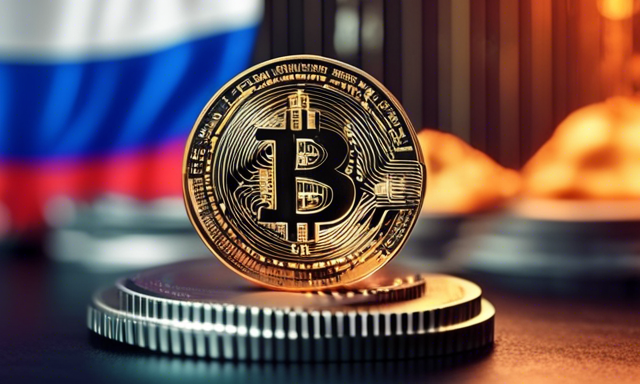Update on Russia’s Cryptocurrency Legislation 🌍
In response to mounting financial pressures from Western sanctions, Russia has enacted significant legislation legalizing cryptocurrency mining and permitting the use of cryptocurrency for international payments. The bills, signed by President Vladimir Putin, aim to alleviate economic pressures by embracing the crypto industry.
Russia’s Shifting Stance Towards Cryptocurrency
While Russia maintains its ban on using cryptocurrencies for domestic payments, the country ranks high in global crypto adoption. The recent legalization aims to formalize the use of cryptocurrency for cross-border transactions, marking a shift from previous anti-crypto stances.
Strategic Cross-Border Payment Integration
The Central Bank of Russia leads the initiative to integrate cryptocurrency into the financial system for international trade. The move is part of Russia’s broader strategy to reduce reliance on the U.S. dollar and mitigate the impact of sanctions through alternative payment mechanisms.
CBR’s Enhanced Regulatory Role
The new legislation empowers the Central Bank of Russia to closely monitor and regulate cryptocurrency transactions within the country. While the CBDC is still in testing, these laws allow for the controlled use of existing cryptocurrencies with central bank oversight.
Potential Legalization of Crypto Exchanges
- Authorities are exploring options to legalize crypto exchanges in Russia, with plans to launch two exchanges in St. Petersburg and Moscow. Despite regulatory challenges, Russia’s crypto ecosystem continues to thrive.
- Key non-KYC exchanges like Tetchange and Bitzlato operate in the country, facilitating crypto transactions within and beyond Russia’s borders.
Cryptocurrency Payment Options
- Russia plans to introduce Chinese Yuan stablecoins and launch BRICS-based stablecoins through the new exchanges. Established stablecoins like USDT and USDC may also be considered for payments.
- The digital ruble, once launched, could play a role in transactions, although its international acceptance remains uncertain due to existing sanctions.
Challenges in On-Chain Sanctions Evasion
While Russia aims to enhance its non-dollar denominated trade through cryptocurrency, large-scale sanctions evasion is unlikely due to liquidity constraints in the crypto market. Smaller-scale evasion activities pose security and compliance risks for sanctioned entities.
Impact of the Crypto Mining Law
The new mining bill in Russia introduces a structured framework for cryptocurrency mining, legitimizing mining operations under state oversight. This move positions Russia as a key player in the global crypto mining arena.
Looking Ahead: Implications for Global Authorities
As Russia enhances its crypto capabilities for international trade, Western authorities will monitor counterparty risks and connections with Russia’s trade partners closely. The transparency of blockchain technology enables real-time tracking of financial activities, highlighting the need for enhanced due diligence.
Hot Take: Embracing Crypto to Navigate Sanctions 🚀
Russia’s strategic shift towards cryptocurrency reflects a calculated response to Western sanctions, aiming to build a financial system less reliant on the U.S. dollar. The success of this initiative hinges on navigating regulatory challenges, managing sanctioned entities, and fostering international partnerships for crypto transactions.





 By
By
 By
By
 By
By

 By
By
 By
By